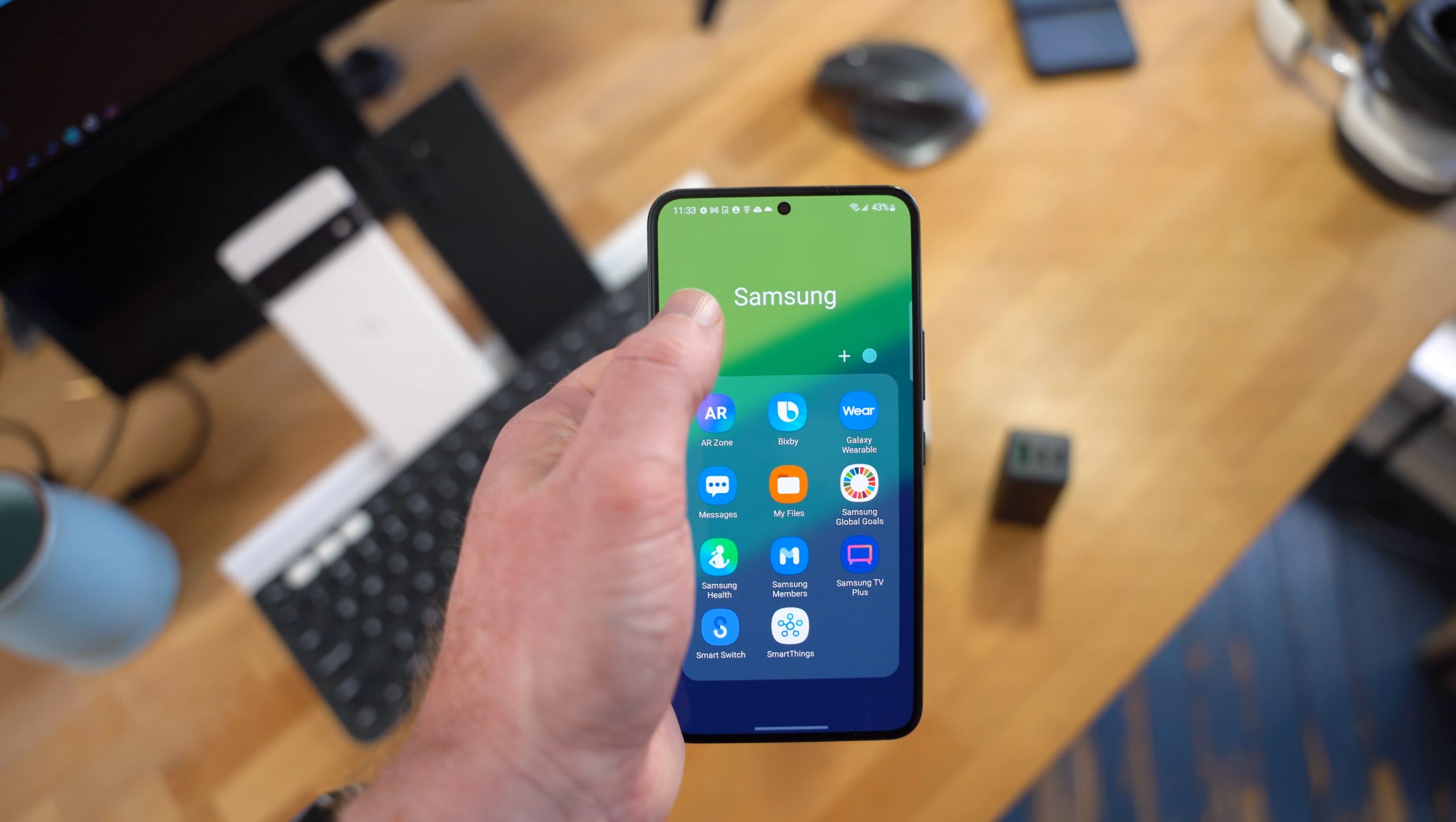The Linux Kernel Archive hasn’t been too pleased with the direction Android has taken. Claiming Android’s developers offer little cooperation and are slow to patch and update their code, they parted ways last year.
But all of that may change soon, as Google has extended the old proverbial olive branch at the Linux Collaboration Summit taking place today and tomorrow in San Francisco. Executive Director of the Linux Foundation Jim Zemlin and open source and public engineering manager for Google Chris DiBona both see hope for Android to rejoin the good graces of Linux.

While DiBona admits it may take a few years, Google is set to hire two new engineers to help make sure Android meets the expectations of the people at Linux. Issues of fragmentation could be a stumbling block, but DiBona just doesn’t see this as the case, noting that it is hard to compare the smartphone OS to its desktop predecessor, and seeing them as two separate Linux entities rather than a single unified project.
Android and Linux working together again could never be bad news. If the Linux people had their way it would mean quicker and more plentiful patches and updates for the OS, and with a few more engineers dedicated to the project on Google’s end, this is a definite possibility. Even if this isn’t the case, simply having the support of Linux could act as a powerful leveraging tool as Android makes its way to more and more non-smartphone devices.
[via ReadWriteWeb]










“It doesn’t help that the people over at the Linux Foundation see Google’s Linux-based OS as aimed at eking out a profit, a goal ideologically opposite from the free nature of the Linux kernel.”
What? Redhat, SuSE, Oracle Unbreakable Linux, etc… These are all for profit commercial distributions.
“It doesn’t help that the people over at the Linux Foundation see Google’s Linux-based OS as aimed at eking out a large-scale profit, a goal ideologically opposite from the free and open nature of the Linux kernel.”
Idiot.
@Darkseider
True, but I think it has more to do with such a HUGE global corporation pumping out a Linux-based OS that the folks at the Linux Foundation already deemed unworthy of being included in the Linux Kernel Archive, yet Google is still bringing in a hefty sum of money off of it.
And? That is the point of open source software. Tivo is another example. What about the countless companies that use BusyBox?
well I suppose you have a point, either way i have updated the article accordingly.
To correct the point the Linux folk are not against profit being made from Linux. Some people are upset that Google makes massive changes to Linux internally and does not share those changes with the community. However they are following the GPL so there should be no argument. Some people just really want to know whats going on inside Google and tarnish FOSS IMO in the quest to find out.
I hope Google will mantain his promises cause i wanna see a super Ubuntu in the next years and Microsoft and Apple beaten!ahahahahahah!
Intel is another huge company that has leveraged Linux as a platform for its products. The big differencewould seem to be that Google has failed to adequately maintain its patches, much as Microsoft did after dropping a couple of its own drivers. Hopefully soon this runaway development that android is currently undergoing will slow down soon and the team at Google will be able to settle down and maintain existing code a little better.
Is Redhat back in the fold? I though Linus disavowed it years ago.
next target is open computing platform on all devices – the desktop/ laptop/ mobile computing/ cell phones etc. if we have windows/ osx/ linux as competitors in all platforms that’d be great. people will truly have choice.
android is actually MORE free than desktop linux. theres several linux distributions you can actually go out and buy. where can you buy android? you cant, its free. companies are just selling hardware that runs it, upgrades are free, etc. these same geeks get all happy when dell offers to sell a system with linux installed instead of windows. how the hell is that any different?
Eric,
Please do some research before posting nonsense comments like this. Please Please Please go to the http://www.gnu.org/ site and read exactly what Linux and “Open” software is. Bellow is a quote straight from the site.
What is Free Software?
“Free software” is a matter of liberty, not price. To understand the concept, you should think of “free” as in “free speech”, not as in “free beer”.
Free software is a matter of the users’ freedom to run, copy, distribute, study, change and improve the software. More precisely, it refers to four kinds of freedom, for the users of the software:
* The freedom to run the program, for any purpose (freedom 0).
* The freedom to study how the program works, and adapt it to your needs (freedom 1). Access to the source code is a precondition for this.
* The freedom to redistribute copies so you can help your neighbor (freedom 2).
* The freedom to improve the program, and release your improvements to the public, so that the whole community benefits (freedom 3). Access to the source code is a precondition for this.
By limiting access to the source code Google is braking some these rights, hence a big slap in the face given that if not for the Linux Kernel and millions of “Geeks” as you put it Android would not exist as it does today.
@Peter – Exactly what source code is Google limiting access to? While the idea of free software is about rights the GPL states you must only share the code if you distribute the application. Google shares its code for Android. It does not share its internal mods to Linux because it does not distribute Linux. That dives off into the whole AGPL idea which I am completely against. It seems like everyone was happy with the GPL until people realized that Google must be doing something big with Linux internally but aren’t telling.
@Eric Where do you buy Windows Mobile, iPhone OS, or Symbian?
None of the disputes have anything to do with money. The problems are interoperability and duplicating effort. The great thing about a single Linux core is that improvements benefit everybody.
Google’s argument that the phone focus of Android is completely different from the mainline kernel just doesn’t hold water. Linux kernels run on everything from blu-ray players to mars rovers and almost all implementations pull from the same central kernel source code.
It completely reasonable that initial development was done as a fork for the sake of expediency during rapid changes. However, as Android matures it is also reasonable to expect that the work is once again consolidated back into the Linux kernel so that the greater Linux community can benefit from Google’s work just as Android has benefited from the work of the community.
Fritz pretty much hit the nail right on the head.
Ah yes Fritz, I was about to just say that.
They never fell out over principles or money. Linus Torvalds doesn’t care about principles, he cares about good code.
Google forked the Linux kernel and made core changes to it. This made it hard to add back to the linux kernel and Google were unwilling to sort it out at the time.
I guess Google finally decided to get their act together.
Fritz, you indeed did hit it right on the head. I believe that the relationship between Google (Android), and the rest of the open source community (Linux) has the potential to become the most mutually beneficial relationships to date within the Linux community, and for ether side to do something to jeopardize that, is complete lunacy.
I think this is very important that Android merges back into the Linux Kernel. I can see it making it easier for roms like CyanogenMod to keep releasing newer kernels if this was the case too.